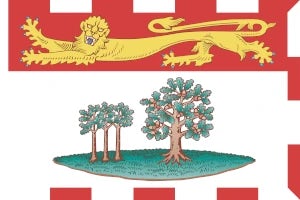Prince Edward Island Tax System
Prince Edward Island (PEI) operates under a tax system that combines provincial and federal elements. Like other Canadian provinces, PEI residents pay both federal and provincial income taxes, with the Canada Revenue Agency (CRA) collecting both through a single tax return.
PEI uses a progressive income tax structure with five brackets ranging from 9.5% for the lowest income bracket to 19% for the highest earners in 2025. This used to be 9.65% to 8.75% for 2024. These provincial rates are applied in addition to federal income tax rates. The province also provides various tax credits to reduce the overall tax burden, including a basic personal amount, age amount, and disability amounts that are similar to federal credits but with provincial-specific amounts.
The province levies a Harmonized Sales Tax (HST) of 15%, which combines the federal Goods and Services Tax (GST) of 5% with a provincial component of 10%. Certain essential items like basic groceries, prescription medications, and most medical devices are exempt from the provincial portion or the entire HST. PEI also offers rebates to lower-income residents to offset some of the HST burden.
Property taxes in PEI are based on the assessed value of properties, with different rates for residential, commercial, and non-resident-owned properties. The province has a unique approach where non-resident property owners typically pay higher rates than residents. Municipalities may add their own property tax levies on top of provincial rates to fund local services.
PEI offers specific tax incentives to encourage economic development in priority sectors, including agriculture, fisheries, tourism, and innovative industries. These may include tax credits, rebates, or preferential tax treatment for qualifying businesses, particularly those creating jobs in rural areas or engaging in environmentally sustainable practices.
For small businesses, PEI has a reduced small business tax rate of 1% on the first $500,000 of active business income, which is among the lowest in Canada. Corporate taxation follows the federal structure but with provincial rates applied, and businesses must register for provincial tax accounts if they have a permanent establishment in PEI or meet certain threshold requirements for operations within the province.
PEI Income Tax Brackets
PEI introduced additional tax brackets and revised the tax rates in 2024, followed by further revision of rates in 2025. The changes are outlined in the table below.
PEI Income Tax Brackets 2023 - 2025
| 2023 Taxable Income | 2023 Tax Rates | 2024 Taxable Income | 2024 Tax Rates | 2025 Taxable Income | 2025 Tax Rates |
|---|---|---|---|---|---|
| Up to $31,984 | 9.8% | Up to $32,656 | 9.65% | Up to $33,328 | 9.5% |
| Over $31,984 to $63,969 | 13.8% | Over $32,656 up to $64,313 | 13.63% | Over $33,328 up to $64,656 | 13.47% |
| Above $63,969 | 16.7% | Over $64,313 to $105,000 | 16.65% | Over $64,656 to $105,000 | 16.6% |
| - | - | Over $105,000 to $140,000 | 18.00% | Over $105,000 to $140,000 | 17.62% |
| - | - | Above $140,000 | 18.75% | Above $140,000 | 19% |
PEI's basic personal amount increases from $12,750 in 2023 to $13,500 in 2024 to $14,250 in 2025.
PEI Personal Amounts 2023-2025
| 2023 | 2024 | 2025 | |
|---|---|---|---|
| Basic Personal Amount | $12,750 | $13,500 | $14,250 |
| Spouse/Common-Law Partner | $10,192 | 11,466 | $12,103 |
| Eligible Dependant | $10,192 | 11,466 | $12,103 |
Prince Edward Island Surtax Eliminated
PEI's surtax is an additional tax on the amount of net provincial tax payable. Till 2023, those who owed over $12,500 in PEI Tax had to pay a surtax of 10% on the tax amount over $12,500. The surtax was eliminated for 2024 and beyond.
PEI Low Income Tax Reduction
You may claim this tax credit if you qualify as a low-income individual or family in PEI. The maximum amount that can be claimed is $350 for oneself and $350 for a spouse or common-law partner. An amount of $300 can be claimed for each child.
PEI Young Child Tax Credit
If you have a dependent child who is younger than six years old, you can claim $100 per month. If you have a spouse/common-law partner, only the lower-income partner can claim this tax credit.
PEI Volunteer Firefighter Tax Credit
You may claim this tax credit if you were a volunteer firefighter and a resident of Prince Edward Island. This tax credit provides a refundable tax credit of $500.
